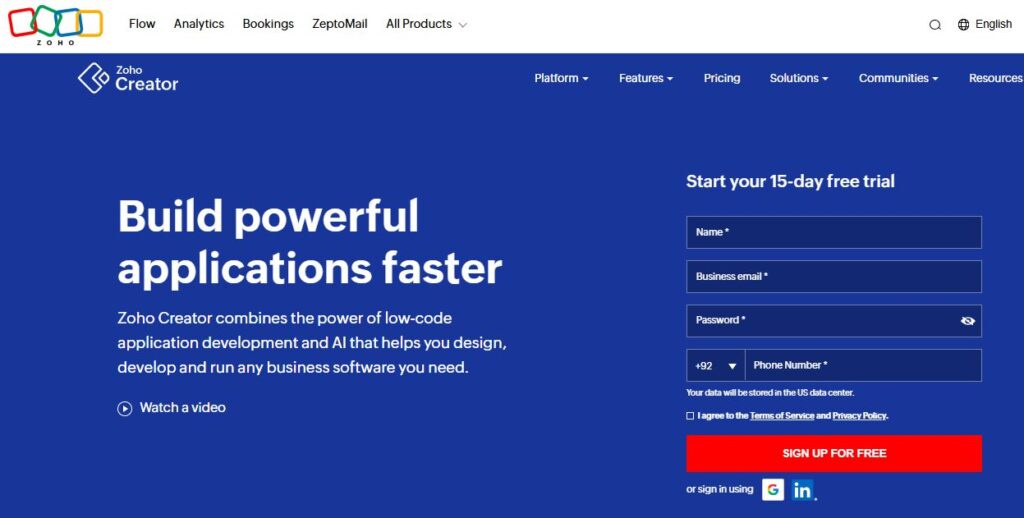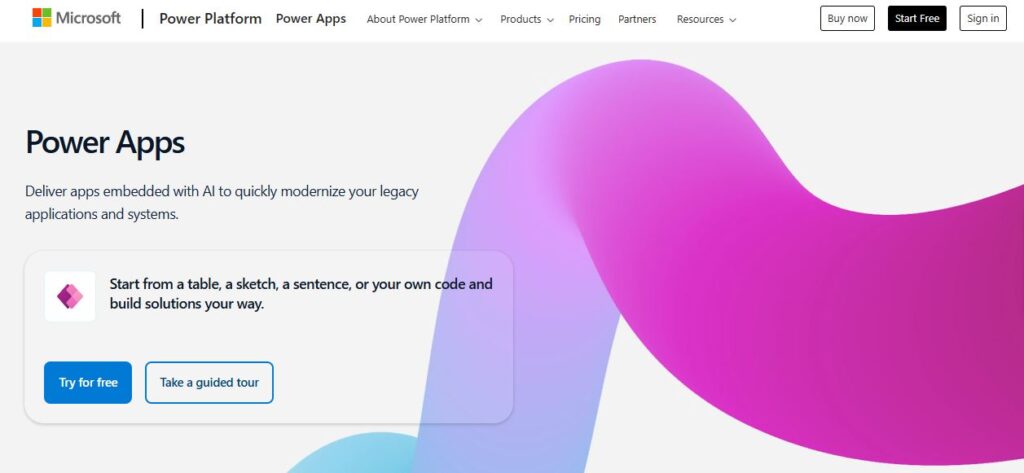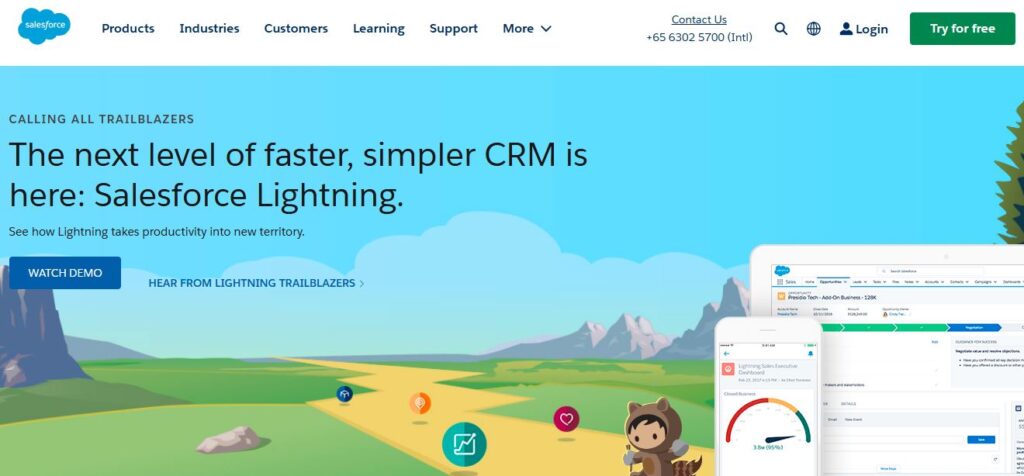Introduction
In today’s rapidly changing digital world, The demand for mobile apps is growing. Businesses want apps that are functional, engaging, and quick to deploy.
However, traditional development methods often fail to meet these needs. This is due to the long and expensive development cycle. Enter the low code mobile development platforms. It’s a revolutionary approach that changes the way apps are built and delivered.
These platforms not only simplify development But also empower a wider range of users to create innovative solutions.
In this guide, we’ll discover what is a low code platform, its benefits, and the high-quality gear shaping the destiny of app development.
What Are Low Code Mobile Development Platforms?
Low-code platforms are software solutions designed to allow developers to create applications with minimal coding effort.
These platforms include out-of-the-box components, drag-and-drop interfaces, and automated processes that together simplify traditional coding work.

If you’re interested in the low-code nature of this platform, think of it as a tool that helps business developers and users build apps faster and more efficiently.
This approach contrasts sharply with conventional methods that require extensive coding knowledge. The emphasis of these platforms is usability and speed.
Whether you’re a small business founder or part of a large corporation, this low-code mobile development platform lets you design apps tailored to your specific needs without breaking the bank.
However, the balance between simplicity and functionality is crucial as it can determine the overall success of your applications.
Key Features of Low Code Development Platforms
- Visual Development: Drag-and-drop functionality makes app creation intuitive and intuitive for users of all skill levels.
- Pre-built modules: Ready-to-use template components save time and effort during development.
- Cross-platform support: Build apps for multiple platforms like iOS, Android, and the web simultaneously.
- Integration capabilities: Seamlessly integrate with third-party tools, APIs, and services for improved productivity.
- Scalability: Scalable to increasing business needs and able to handle complex applications.
- Security Measures: Built-in tools to ensure data protection and compliance with industry standards.
These features ensure that low-code platforms provide everything needed to make the app development process easier and faster.
Benefits of Low Code Platforms
The advantages of low-code structures pass beyond speed and ease. Here are a few key blessings:
- Faster Development: Reduce improvement timelines by up to 70%, enabling quicker time-to-market.
- Cost-effective: Minimize the need for considerable coding expertise and reduce normal development costs.
- Ease of use: Even non-builders, such as commercial enterprise analysts or undertaking managers, can contribute to the introduction of applications.
- Improved collaboration: Supports teamwork between IT and enterprise units by presenting a shared platform.
- Rapid prototyping: Test and iterate quickly to satisfy marketplace needs and stay ahead of the competition.
- Flexibility: Easily replace and alter applications as the enterprise wishes to evolve without requiring a primary rebuild.
By taking these advantages, businesses can streamline their development methods and reap greater performance.
Why Low Code Platforms are the Future
Increased adoption of low-code platforms underscores the potential of these platforms to shape the future of app development. While various businesses are committed to digital transformation these platforms offer:
- Accessibility: Democratize app development for a wide audience. Including non-technical users.
- Innovation: Accelerate time-to-market for new ideas, giving businesses a competitive advantage.
- Scalability: Easily supports complex enterprise applications. Making it suitable for organizations of all sizes.
- Flexibility: Helps businesses adapt more effectively to changing market conditions and customer needs.
This market is, therefore, likely to grow substantially with the technology because of the increasing demand for efficient and scalable solutions, and low-code development platforms will be an increasingly important part of modern business strategies.
Top Low Code Platforms to Explore
If you are trying to find the best low-code improvement structures, here are a few main options:
Known for its scalability and agency-grade solutions, OutSystems is a famous choice for agencies searching out robust tools.

Ideal for beginner and skilled developers, Mendix offers a complete development environment.

Offers strong integration competencies and is properly acceptable for workflow and method automation.

A cost-effective desire for small corporations, Zoho Creator simplifies app improvement with its intuitive interface.

Seamlessly integrates with the Microsoft atmosphere, making it a brilliant option for businesses that already use Microsoft gear.

Focuses on empowering business customers with minimal IT involvement.

Designed for fast app improvement in the Salesforce surroundings.

These top low-code platforms cater to different needs ensuring that there exists a solution that will suit all business types be it small-sized or large size and any industrial nature.
How to Choose the Best Low Code Development Platform
With so many options to choose from, what is the best low code platform for your business? Here are some key factors to consider:
- Ease of Use: Is the platform user-friendly?
- Scalability: Will it grow with your business and be able to cope with increasing demands?
- Integration: Does it support existing tools and systems seamlessly?
- Security: Are there built-in features to protect sensitive data and ensure compliance?
- Support and Training: Are training and customer support resources available to help users?
- Price: Does the platform meet your budget by giving you the features you need?
By evaluating these factors You can identify the platform that best suits your organization’s needs.
Advantages of Low Code Platforms Over Traditional Development
The advantages of low-code platforms make them a game changer for app development. Compared to traditional encryption methods.
There is the following way:
- Reduced Complexity: Simplified workflow that eliminates the need for extensive code knowledge.
- Reduce Costs: Reduce hiring of specialized developers and reduce overall project costs.
- Increased Agility: Adapt quickly to changing market demands and customer demands.
- Better Use of Resources: Free up IT resources to focus on more strategic tasks.
- Improves Quality: Automated testing and debugging tools improve application reliability and performance.
These benefits make low-code mobile development platforms a powerful alternative to traditional development approaches. This is especially true for businesses looking for efficiency and scalability.
Real-World Applications of Low Code Platforms
The versatility of low-code systems extends across various industries. Here are a few sensible programs:
- E-Commerce: Build custom online stores with incorporated payment gateways and user-friendly interfaces.
- Healthcare: Develop patient management systems and telehealth packages.
- Finance: Create steady apps for banking, budgeting, and economic planning.
- Education: Design interactive gaining knowledge of systems and administrative gear.
- Manufacturing: Streamline operations with inventory management and deliver chain apps.
These examples demonstrate the transformative capacity of low code improvement systems in addressing unique business challenges.
Conclusion
Low code mobile development platforms are revolutionizing the app development landscape. By offering speed, accessibility, and innovation, they empower businesses to stay aggressive in a digital-first global.
Whether you’re a startup or an established organization, adopting a low code improvement platform can be the important thing to unlocking your app improvement capacity.
Explore the opportunities with low-code systems and embrace the future of app improvement nowadays. As those tools continue to adapt, they promise to redefine how groups method technology, making app development faster, easier, and greater reachable than ever before.
FAQs
What is a low code platform?
A low code platform is a tool that allows builders to build packages with minimal coding via the usage of visible interfaces, pre-built modules, and drag-and-drop functionalities.
Who can advantage of low-code mobile development platforms?
Businesses of all sizes, startups, corporations, and even non-technical customers like project managers or analysts can benefit by using growing apps speedy and cost-efficaciously.
What are the benefits of low code development over conventional improvement?
Low code systems offer faster development, reduced expenses, progressed collaboration, scalability, and ease of use compared to traditional coding strategies.
What industries use low-code platforms?
Industries consisting of healthcare, finance, e-commerce, education, and production use low code structures for programs like affected person management, secure banking apps, online stores, and delivery chain tools.
Which are the top low code platforms to don’t forget?
Leading options consist of OutSystems, Mendix, Microsoft Power Apps, Zoho Creator, and Appian, every catering to distinctive business desires and scales.







